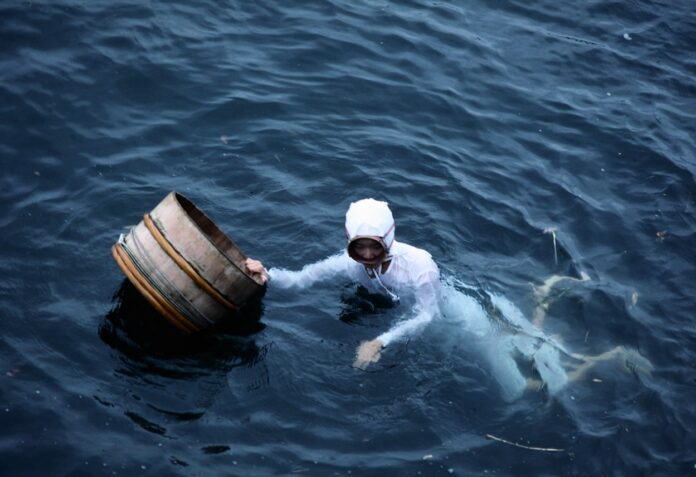Leading ductwork, extraction and fabrication specialists Airmatic has done some digging to compile a list of the top 10 most dangerous jobs you’ve probably never heard of. Searching all corners of the planet and even the depths of the ocean, these jobs being a thing may even may surprise you. Strap yourself in for the top 10…
Crab fisherman
The clue is in the name when it comes to this job, however the role itself is nowhere near as simple. Crab fisherman have to navigate dangerous waters around Alaska in order to find tasty shellfish, but it doesn’t stop there. The most common causes of deaths in the workplace for this role is drowning from rough seas, hypothermia, or being thrown overboard after getting caught in the steel cages used to catch the crabs – yikes. According to the Alaska Fishing Employment Centre, deckhands in the king crab fishing industry can make between $20,000 and $50,000 in just three months during the king crab season.
Electrical lineman
Electrical linemen install and repair high-voltage power lines and telecommunications cables at great heights, regardless of weather. On top of carrying themselves up there, they’ll also have to haul all their equipment up as well. The main reasons for such a high rate of fatalities are electrocution from the wires that can carry up to 500,000 volts, and falling from heights. According to statistics, 42 people die on the job each year per 100,000. The average pay in the UK for a lineman is £34,817 a year. We’ll leave it for you to decide if that’s worth the risk.
Sherpa
Despite only around 800 people attempting to summit Mount Everest each year, the death rate is a startling 14.1%, according to the World Economic Forum. In face of this, these daring people still show up each year willing to pay someone a lot of money to help them get to the top. This is where the Sherpas come in. These mountain experts can make up to $6,000 per job, which is just below the average annual salary in Nepal. The money is high due to the previously mentioned death rate – and although they might be the experts – their risk is no different. Most deaths come from altitude sickness, exposure, falls or natural disasters such as avalanches. In fact the death rate for a Sherpa (based on 2004 to 2014 numbers) is 4,053 per 100,000. Heavy.
Smokejumper
Firefighters used to have one of the most dangerous jobs in the world, before new equipment and safety procedures brought the death rate down to 2.5 per 100,000 people. Though they still deserve a huge amount of credit for their bravery and hard work, there are firefighters, and then there are Smokejumpers. This small group of adrenaline seekers have chosen to combine the thrill of skydiving with the danger of fighting a fire out in the wilderness. Smokejumpers parachute down into remote places that can’t be reached by roads and use specialist tools to stop the fires spreading. Whilst the death rate is relatively low for these guys, the injury rate is still 700 per 100,000.
Underwater welders
Welding is hard enough as it is. From the poisonous fumes and bright lights, to the hot working conditions and sweaty safety equipment, it’s a tough gig being a welder ,which is why it can be so well paid. Now imagine this but underwater.
Despite the fact you won’t have to breathe in fumes and will no longer be hot and sweaty, the underwater version of this job is even more dangerous than the former. Underwater welders work on ships, pipelines and submarines to name a few, which means they have to dive fairly deep at times with their equipment in order to reach the parts that need welding. The biggest threat to the lives of underwater welders actually comes from electric shock, which is why they use thoroughly tested waterproof equipment for all jobs. Another big risk is explosions from gas pockets created from the formation of oxygen and hydrogen – which can be lethal.
Aside from these, you also have the standard diving risks of hypothermia, drowning, and decompression sickness. A previous study from 2018 by the Bureau of Labor Statistics found that for every 100,000 workers in the US, around 3.5 of them die on the job each year. Because of the high risk of the job, you will be rewarded financially with the average UK salary being around £70K.
Helicopter cowboy
Think horseback and lassoes but in the 21st century. The Austrailians came up with an even better way to herd their cattle by using a small low-flying helicopter instead of quad bikes or even horses. According to a BBC article, roughly 10 helicopter musterers die in crashes each year which shows exactly how dangerous one wrong move could be. Whilst there are no average figures of salary out there due to the limited number of these jobs, it’d have to be a significant amount due to the danger but also the price of insurance. The same BBC article shows a farmer paying $42,000 a year to insure himself for $2.5 million.
Snake milker
Although there’s no such thing as snake milk, the job title refers to the person whose job it is to remove the venom from the fangs of snakes. Now although this sounds like a death wish, there’s actually a reason for it. The venom is used to make anti-venom which is given post-bite where -in certain cases and countries – it can be deadly if not administered immediately. So you might be risking your life daily in this line of work, but at least it’s for a good cause. Most snake milkers are zoologists who work for national zoos and animal conservation agencies. Based on this, for the risk you’re taking you could be rewarded up to £30K a year in the UK and you’d need a relevant degree for the privilege. You’re also pretty much guaranteed to get bitten at some point too so you better have that anti-venom close by.
White Helmets
White Helmets are members of the all-volunteer Syria Civil Defence organization. These are the people who go back into the destruction bombs have caused, in order to find survivors in the rubble. However, usually survivors aren’t the only things left in the rubble as according to CNN, in Syria there are bombs left behind called “double taps” which target first responders. This is just another factor that makes the job so much riskier. There have been 252 White Helmets killed since 2013, which gives them a death rate of 8,400 per 100,000. It’s a risky gig and the pay isn’t the reason that they turn up every day as it’s a slim $250 a month paycheck. The more likely reason that they keep turning up is because of the thousands of people they’ve rescued over the years, and continue to with each day of continuing conflicts.
Pearl divers
The best and most expensive pearls aren’t found in oyster farms. They’re found in the depths of the sea which can only be accessed by a pearl diver free-diving to the bottom of the ocean armed with a basket and a nose plug. The dangers of this are deeper than just having to hold your breath, with predators such as sharks being a problem, as well as the bends which comes from inadequate decompression following exposure to increased pressure (or ascending too quickly on a deep dive). However, spending the day in crystal clear waters in tropical countries isn’t the worst day at work ever. The views at work aren’t the only rewarding part of the job too, with the salaries of pearl divers in the US ranging from $51K – $73K.
Bomb squad technician
We’ve all seen Hurtlocker, however the reality isn’t quite as glamorous or thrilling. Away from Hollywood, in the real world, the main role of a bomb squad technician is identifying improvised explosive devices and deactivating them. They may also be called to civilian areas to disarm explosives left through crime or even old war bombs which have been uncovered after years. We don’t need to explain the dangers of this role to you, if you can’t defuse the bomb or make a wrong move, you’re blowing up with it. According to sortyourfuture.co.uk, the salary of a bomb disposal technician can range anywhere from £16K to £45K for the more experienced diffusers.

| [donate]
| Help keep news FREE for our readersSupporting your local community newspaper/online news outlet is crucial now more than ever. If you believe in independent journalism,then consider making a valuable contribution by making a one-time or monthly donation. We operate in rural areas where providing unbiased news can be challenging. |



















